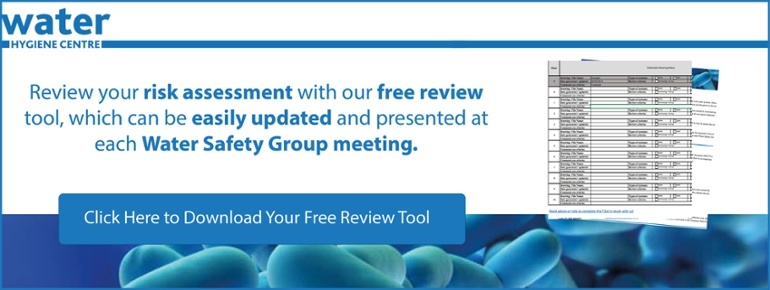To determine an appropriate and proportionate control strategy for the safe management of waterborne bacteria such as Legionella species (spp.), it’s prudent to understand the differences between managing healthcare and non-healthcare estates.
Hospices
Hospices provide care from the time in which a terminal illness has been diagnosed until “end of life” by working with several different health professionals – securing National Health Service (NHS) funding and charitable donations to facilitate this care.
Health Services Providers
Such companies, charities, NHS Trusts, and local authorities must register with the Care Quality Commission (CQC) following the CQC (Registration) Regulations (2009). The CQC independently regulates all providers of regulated health and adult social care activities in England to ensure that accepted quality standards are adhered to and that health estates are ‘fit for purpose’.
Legionella: Regulations
Health estates are assessed against a set of legal requirements and governance standards – the associated principles of health and safety are enshrined within the Health and Social Care Act 2008 (Regulated Activities) Regulations 2014 and specifically Regulation 12(2)(h) and Regulation 15 of the Act.
Failure to comply with the ‘Registration’ or ‘Act’ is an offence and as such the CQC have ‘enforcement powers’ to ensure compliance with accepted standards. Such enforcement powers include; issuing time-defined warning notices, prosecution, and canceling a provider’s registration – removing its ability to provide regulated activities.
HTM04-01
.png?width=409&height=202&name=Home%20(3).png) HTM 04-01 Safe Water in Healthcare Premises seeks to set out the standards for water safety within health estates by acknowledging within its three parts (A, B and C) the regulatory requirements of the Health and Social Care Act as well as the role of the Health and Safety Executive (HSE) for the safe management of health estates.
HTM 04-01 Safe Water in Healthcare Premises seeks to set out the standards for water safety within health estates by acknowledging within its three parts (A, B and C) the regulatory requirements of the Health and Social Care Act as well as the role of the Health and Safety Executive (HSE) for the safe management of health estates.
ACoP L8 and HSG274
.png?width=409&height=202&name=Home%20(2).png) These documents are particularly noteworthy, as the HSE are typically associated with enforcing water compliance standards following the Approved Code of Practice (ACoP) L8 and associated technical guidance HSG 274 Parts 1, 2 and 3; which are applied and shape non-healthcare water compliance governance.
These documents are particularly noteworthy, as the HSE are typically associated with enforcing water compliance standards following the Approved Code of Practice (ACoP) L8 and associated technical guidance HSG 274 Parts 1, 2 and 3; which are applied and shape non-healthcare water compliance governance.
The HSE have historically taken the lead on enforcement responsibilities regarding Legionella incidents – however, there is a ‘Memorandum of Understanding’ between the Care Quality Commission, the HSE and local authorities in England, which defines who is responsible for which type of incident enforcement.
Therefore, when developing your water safety governance framework (i.e. a Water Safety Plan and Legionella Risk Assessments) for the safe management of ‘health estates’ such as hospices, it would be prudent to acknowledge the practical and prescriptive guidance set out within both HTM 04-01 and ACoP L8 HSG274 to ensure adherence to established standards and compliance to associated health and safety law.
Finally, it’s worth noting that following such guidance is not mandatory. However, if an organisation chooses not to follow this guidance when controlling Legionella and other waterborne pathogens, then demonstrable evidence will be required that an equivalent or better level of compliance has been achieved.
As such, compliance with these guidance notes and associated regulations and standards should be considered the minimum requirement to suitably adhere to the requirements of the referenced health and safety law!
Feel free to reach out if you have any questions about the issues mentioned above or if you would like to consult with one of our experts on water hygiene.
Editors Note: The information provided in this blog is correct at the date of original publication – April 2020 (Revised February 2024).
Image by truthseeker08 from Pixabay
© Water Hygiene Centre 2024









